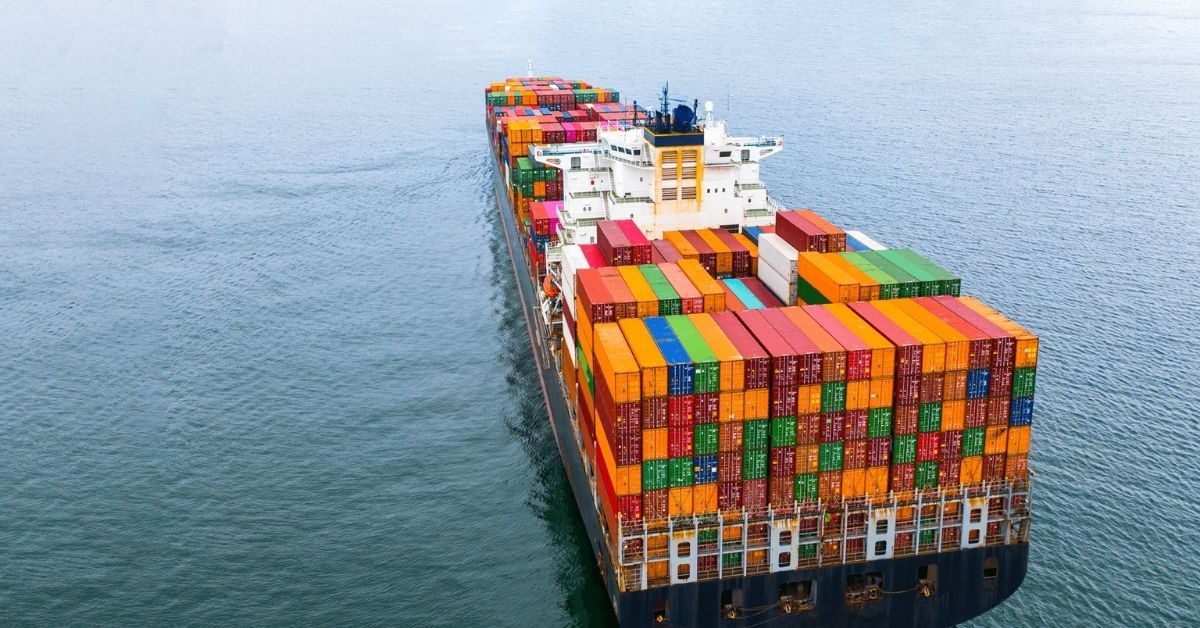The outrageous container rates between Asia and European and American ports may be what got every shipper in the lather, but it is not what the carriers care about. Their shopping sprees reduced the market to a few networks practically indistinguishable from each other. While they seem to be on a profitable two-year roll, even five years of amazing profits can’t hide the inevitable periods of lower rates and high operating expenses further ahead.
In fact, commoditisation of container transport has not abated in response to the pandemic. It is a cruel process of ever larger companies trying to divide the market any way they can by any possible differentiation. Forget differentiating with digitalisation. The carrier folks know that assets-based game and they know, mostly, the assets needed to move the cargo from the land origin to the land destination. In the very cosy club of today, no action goes without reaction.
Strangely enough, with enough business missteps in their history to fill up an encyclopaedia of shipping, Maersk continues to be the most watched company of them all. Maersk buys ultra big ships? All others jump in, even outdoing the original first mover. Maersk re-integrates the carcass of Damco to bring capacity and capacity consolidator together? CMA CGM responds with acquisition of CEVA. Shortly after, MSC acquires Bollore. Not to be outdone, Maersk responds by acquiring LF Logistics. Did I mention Maersk adding aircraft to offer options to shippers in the hurry? MSC tries to buy one too.
Those tit for tat actions are typical of a commoditised market, which makes one wonder if the transporting of containers has reached the level of commoditisation seen in transporting passengers.
Nobody in the business of travelling steel boxes likes this comparison, but how ridiculous are the similarities in the journey?
Building a bigger network served by bigger planes? Check. Acquiring distressed competitors who couldn’t afford to build a larger network with larger planes? Check. Ramping up volumes with the help of semi-loyal customers’ agencies? Check. Reducing the influence of said agencies by taking over their larger customers and sending the small ones to the electronic ordering portals owned by the carriers? Check. Trying to offer ground services without actually owning the ground assets? Check. Applying exorbitant and unexplainable charges for any customer action, whether justified or not? Check. Buying a hotel chain to house the customers once they are off the planes? Well, that was the PanAm fail, but we got to give it a check, don’t we?
From the freight forwarders’ quarters you only hear the same refrain. They claim to be smarter, closer to the customer, more attentive to customer needs, offer a broader range of services, and so on. The process of whittling out the agencies has also happened in passenger travel. There used to be a travel agency on every corner offering airline tickets to cheap travellers and ‘sophisticated’ travel packages to travellers who hated the self-service of the web consolidator sites. They are now ancient history, being squeezed out by the carriers offering their own direct sales of ‘packages’ and no-frill self-service digital consolidators doing the rest.
It is a miracle that the Flight Centre logo is still out there among the fog of the pandemic, maybe not on the High Street, but they evolved somehow their offer to eke out a living in light of the airlines cutting their commissions to a bare minimum. Their smaller competitors can’t even get the airlines to pick up their calls. Did you notice how during the pandemic business fares quintupled and economy fares quadrupled, yet airlines would not even promise that the flight you booked would even go? While the airfares soared, the agencies would only receive a flat fee per booking, not the percentage cut of the full fares. That’s the world of constant spot prices and no guarantees. The passenger air transport market became the perfect mirror of the container transport market.
Where does it leave the humble freight forwarder? For as long as the capacity crunch continues, the carriers will have the upper hand in dealing with the freight forwarders. The large ones will continue fighting another day. The very small boutique shops will also keep going. Bu the great middle will fall victim to the same process that the carriers went through – rationalisation and consolidation.
As the pressure builds and differentiation becomes more scarce, consolidation becomes the only viable path. As the less agile operators with small customer bases falter, the ones with money will keep swooping in. Inevitably, those acquisitions will be paid with job losses as the acquirers remove duplication of positions and headcounts. The year 2022 is the Chinese year of the tiger. I wonder who will have the last roar in the freight forwarding wars of attrition.
Source : Splash247






